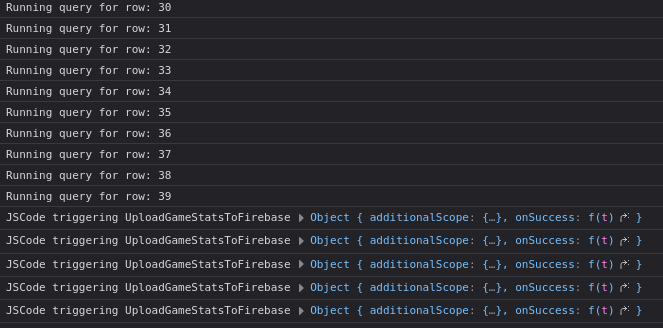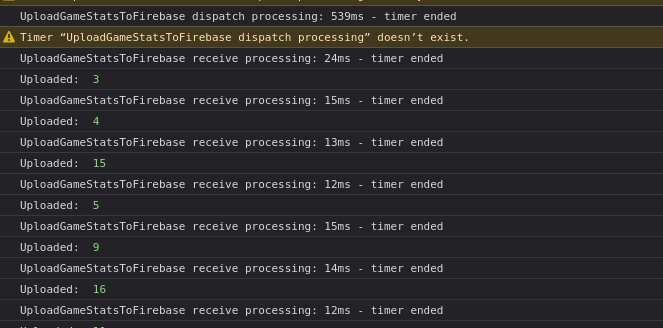I have a CSV file with 300K+ entries from which I have to upload that data to Firebase Firestore. I am doing this in a recursive method to make the calls again and again.
Now I have the code which works just fine.
const rows = gameStatsFileButton.parsedValue[0]; // This basically gets the number of rows in the document.
// This is a delay function I made
async function delay(ms) {
console.log("delay called for" + ms);
return new Promise(resolve => setTimeout(resolve, ms))
}
//This is the function that triggers the method to upload the data
async function uploadCall(thisData, index) {
console.log("Uploaded", index);
await UploadGameStatsToFirebase.trigger({
additionalScope:{
data:thisData,
},
onSuccess: function(data) {}
});
}
// This is the main Loop function.
// It is called recursively, to loop through the contents of CSV file and call
// the upload method to upload that row.
async function runQuery(i) {
if(i >= rows.length) {
console.log("Finished running all queries");
return;
}
var data = rows[i];
console.log("Running query for row" + I);
await delay(2000); // calling delay method to add a delay of 2 seconds.
uploadCall(data, i);
runQuery(i+1);
}
runQuery(0);
Since the number of rows or entries in the CSV is a lot; it will obviously take some time to upload the data. But with my current implementation, it takes ridiculously long and after a while, it crashes the browser because it overloads the thread (from my understanding at least).
Also, from my understanding; I cannot make this process synchronous at all since each API call takes 2s, meaning it'll take 600k seconds to complete the data. It's not practical at all.
I can only insert one row at a time to Firestore, from the methods I have. What is the efficient and/or industry standard for making large amounts of async API calls?


